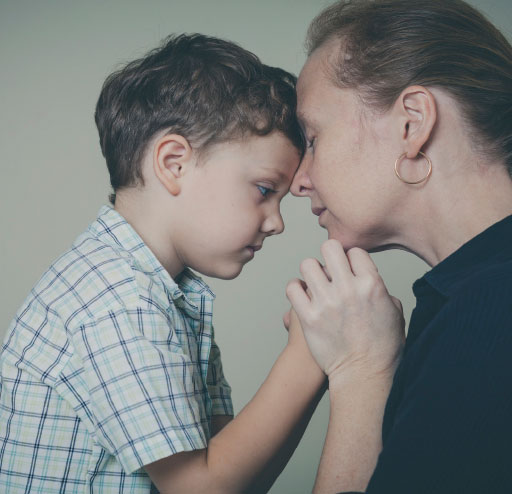Download a printable version of this article (PDF 701KB)
“Optimism is the faith that leads to achievement. Nothing can be done without hope and confidence.”
– Helen Keller

When parents and carers learn that their child is being bullied, the news can be heartbreaking. It can floor them. It can worry them. It can even panic them.
It can potentially return parents and carers to the anguish of their own childhood. It can conjure images from news stories, covering the very worst impacts of bullying and the devastating choices that some young people make when they feel that there is no other way forward.
Recognising all of this, the moment that you learn your child is being bullied is the very moment that you need to explicitly describe and work towards the better future ahead. This is a turning point and a vital opportunity to turn this moment into a positive. The next steps entail exploring rather than rejecting possible solutions.
I once was seconded to work with a serious bullying situation with two Year 10 students in a nearby school. The student who was bullying accepted responsibility and admitted fault, encouraged by his mortified parents who expected better of their son. They were as willing to participate in a resolution and a better future as I’ve ever seen a child who has been bullying and his family be.
However, the family of the student who was being bullied wanted a different outcome. They wanted punishments that were swift, severe, exclusionary and permanent. They wanted the other student removed from bus routes, from year level events, from all privileges and, preferably, from the school permanently.
They spoke in front of their son about the depressive state he’d been forced into by the actions of the child who was bullying him and how they firmly believed he may never fully recover. They spoke, in front of their son about their fears of self-harm and suicide even though no such thoughts had been expressed by their boy. They spoke in front of their son about their belief that the school and its staff were totally incompetent, incapable of delivering even the basic components of their duty of care.
They threatened law suits, restraining orders and revenge. They saw no way that this could be fixed.
They were convinced of that.
Their pessimism, although understandable, was the greatest contributing factor in the unsatisfactory outcome that was achieved.
Choosing optimistic parenting isn’t about pretending that everything is fine and wonderful. It is about showing confidence to children, through words, actions and demeanour that brighter days are ahead.
Optimistic parenting and caring can start simply by assuring your child that the school has dealt with this before, that teachers actually know a thing or two about bullying behaviours and that they take it seriously. It is about letting children know that solutions probably won’t even take long to start working, that you’re there to support them, and assuring them that you can get through the current situation together so that life will be much better for them really soon.
Treating the process as a valuable albeit uncomfortable and challenging learning opportunity can help too. Moving forward consider approaches such as:
- Perhaps, after this intervention, we’ll be better armed if future bullying instances arise.
- Perhaps we’ll both know better how to prevent this bobbing up again if we throw ourselves into this.
- Perhaps we’ll even learn something.
These are the attitudes and words of optimistic parents and carers … and they help. And isn’t help the thing we most want to provide?








